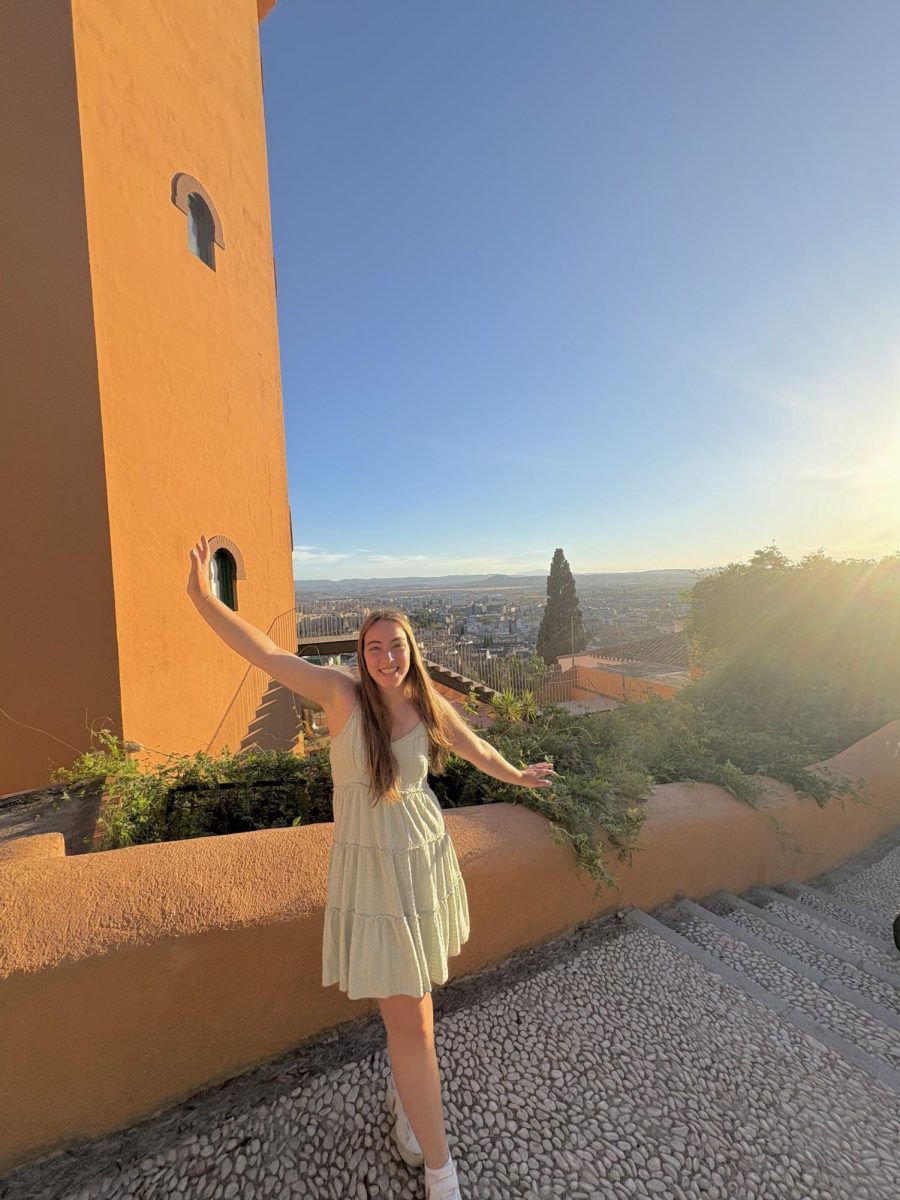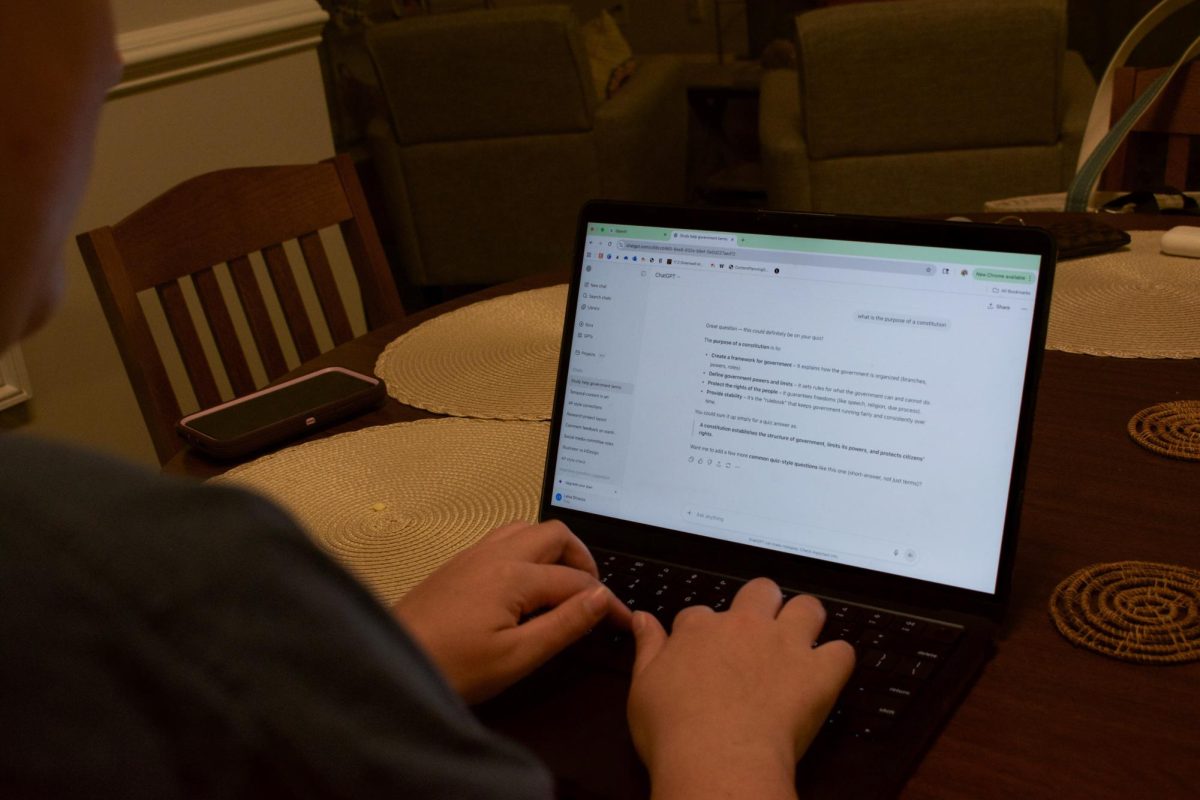Compiled By: Addie Lawrence, Editor
The Old Gold and Black sat down with President Nayef Samhat for an on-the-record editorial board meeting, asking questions from staff and those submitted by the Wofford student body. Here are his answers to those questions:
Q1. Why did tuition increase?
A1. I would anticipate that the costs of operating any organization in this country…will continue to rise. I think that’s just the nature of the economy we’re in.
We try to contain costs, and I’m happy to say, at least in my two and a half years here, we have reduced that rising cost from four and a half to four and a quarter, and now we’re right around four [percent]. My expectation going forward is to provide some certainty to families, and we want to stabilize it right in this area.
When you look at our peers, we’re either right in line or below [net costs]. We remain regarded as a so-called best value by all major sources: Kiplinger’s, Smart Money, Forbes.
Q2. What determines the budget?
A2. The two big drivers in our budget are the financial aid we provide to students, and because we’re a people-oriented organization, everything operates and functions because of personal relationships here, in wages and benefits in addition to other program costs. I think the people here deserve as well of a standard of living that we can provide because they work nonstop for all of you. I also think if we can provide them a good standard of living, people will want to come here. Everything that is being done is done for all of you.
Q3. What is the College doing to reduce rising costs?
A3. This capital campaign that we’re initiating is focused on enhancing scholarships. We want to know, what can we do to reduce the rising cost or stabilize the rising cost of tuition? Now, costs rise in every sector in the country. That’s one of the natural features of demand.
The more scholarships we can generate, the more we can stabilize costs. Every dollar of funded scholarship provides a dollar in the operating program to support you folks. I always say, one dollar given for scholarships generates two dollars of outcome.
Q4. Has the College considered a locked-in tuition model?
A4. We modeled it last year. When I’ve seen institutions do that, what very often happens…is that the next class has to pay a much higher net price than the class before, sometimes exceeding 5 or 6 percent. They’re very often making up that revenue in the next class, and the class after, as opposed to trying to minimize increases and distribute them across all four classes.
Q5. Based on rumors of a chlamydia outbreak, should Wofford employ a more comprehensive sex education program?
A5. I heard about an outbreak, and I asked our staff in the Wellness Center if there was an outbreak, and they had no unusual variation in the number of cases that they were seeing. I know they have programs on sex education. If students desire more sexual education programs, I’m all for it, and I think they’re all for it as well.
Q6. How will the nearly complete employee turnover affect The Space?
A6. The career and professional development program has to reach out to every student on this campus, and to be blunt, that wasn’t happening. It’s not the student who says ‘I’ve got this idea, I’m going in there’ that you need to worry about. It’s the students who are reluctant for whatever reason- those are the ones that you have to touch. Many of them were not touched. Over the past few years, maybe 50 percent may have gone to the Space, and that could be a high number. The rest didn’t, for whatever reason. That’s a problem.
The Space has two components: one is the kind of flashy and well-liked, well-publicized impact and launch programs, the entrepreneurial side, and the other is the nuts and bolts and frankly less glamorous side, which is how to help students make resumes, how to help students interview, how to connect them with internships, how to put them in the position to be successful at whatever it is they want to do, how to help them find their path.
Fundamentally our goal here is to make sure that every student, from the point they come into Wofford to the point they leave, is touched by that program.
Q7. Do you have any comments about construction delays on the Greek Village?
A7. The delay is entirely a function of rain. It will open if I have to go in there and paint those walls. I know it’s important, not only to students in our Greek organizations, but to all students, as a center of activity. I could not identify someone who wants that open more than me.
Q8. Students have suggested that more faculty are needed for the economics, business and finance departments due to limited space in classes. Is this issue being addressed?
A8. They are high-demand. When you look at the patterns of classes when they’re taken, we have spaces in other sections that mi`ght be less convenient. Oftentimes the perception of demand has to be filtered through, ‘I want to take this at this time in my academic career.’
Do you have questions for President Samhat? Email them to [email protected]. Your question may be asked at our next editorial board meeting and may appear in a new edition of the Old Gold and Black.


























